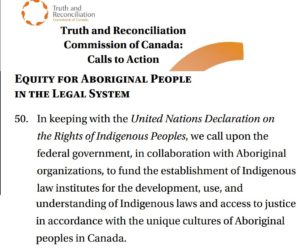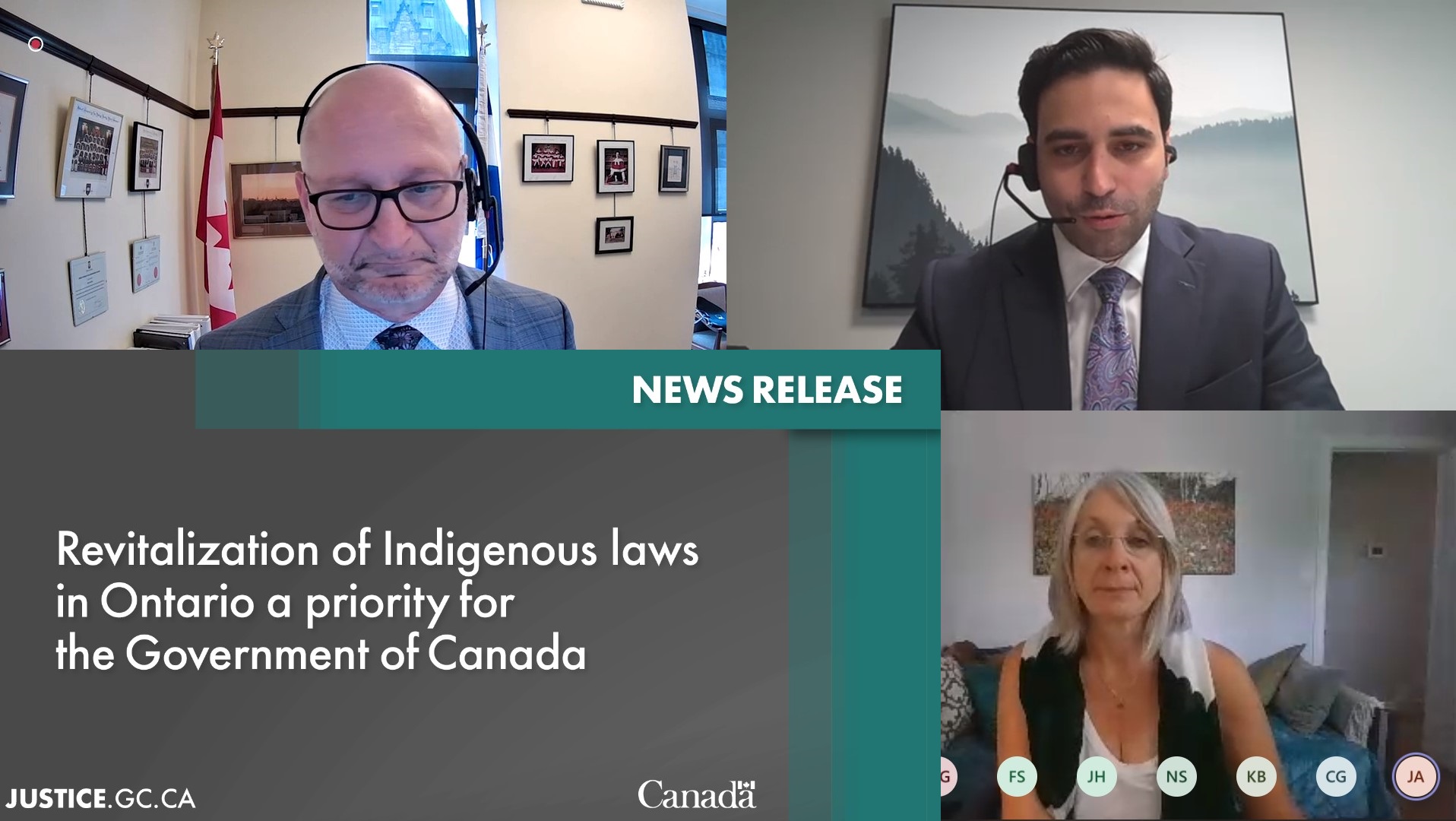Ottawa is investing just under $1 million on initiatives to improve Indigenous laws and law-making institutions in Canada.

The projects focus on protecting Indigenous Peoples’ right to self-determination, supporting the revitalization of Indigenous legal systems and traditions, as well as acknowledging the integral role that Indigenous communities and organizations play in the development, use and understanding of Indigenous laws.
The support is in line with Canada’s response to the Truth and Reconciliation Commission’s (TRC) Call to Action 50 (details to the right).
The $918,270 over three years will be divided between two projects run by the Association of Iroquois and Allied Indians and Lakehead University’s Bora Laskin Faculty of Law.




